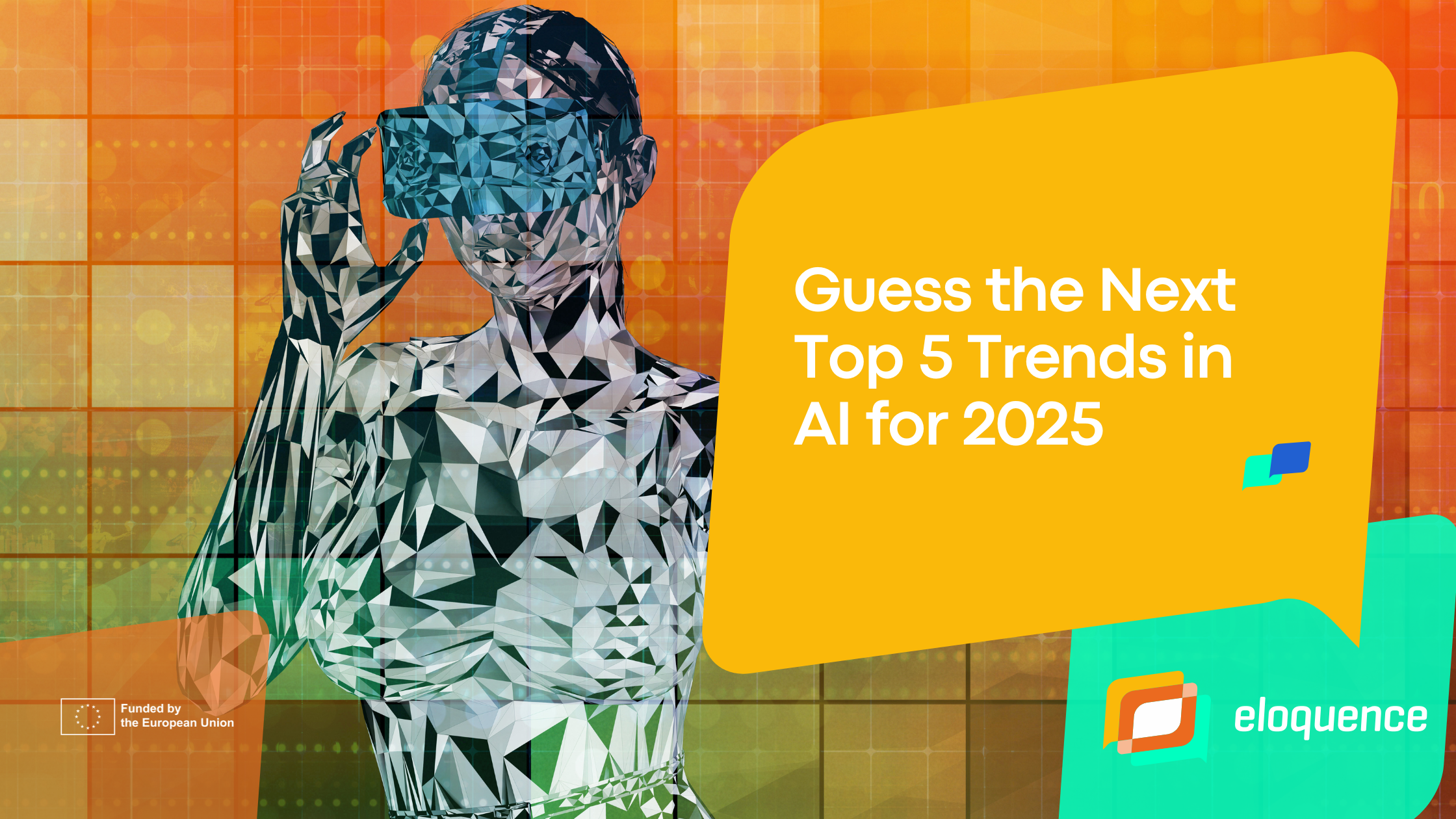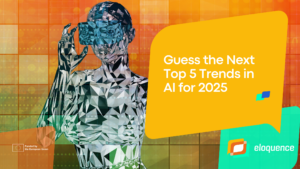As artificial intelligence continues to evolve at a rapid pace, what can we expect in the coming year? From advancements in deep learning to ethical AI frameworks, here are our predictions for the top five AI trends set to shape 2025.
- Multimodal AI – The Next FrontierAI models are becoming increasingly capable of processing and understanding multiple data types simultaneously. Multimodal AI, which integrates text, images, audio, and video, will drive innovations in virtual assistants, healthcare diagnostics, and creative content generation. This evolution will enhance human- computer interactions and make AI systems more intuitive and context-aware.
- AI for Scientific Discovery and Drug Development – AI is set to revolutionize scientific research, from accelerating drug discovery to optimizing energy solutions. Generative models and AI-driven simulations will help researchers make breakthroughs in chemistry, biology, and physics faster than ever before. Expect AI to play a crucial role in developing new medications, materials, and climate-friendly innovations.
- Trustworthy AI and Ethical Frameworks – With the increasing reliance on AI in decision-making, concerns around bias, transparency, and accountability will push for stronger ethical regulations. AI developers will focus on creating explainable AI (XAI), ensuring that models are interpretable, fair, and aligned with societal values. Expect to see more AI governance frameworks and compliance tools emerging across industries.
- Edge AI – Smarter, Faster, and More Private – Rather than depending solely on cloud computing, AI will process data closer to the source with edge computing. This trend will enhance real-time applications in smart devices, autonomous vehicles, and IoT systems, improving efficiency, reducing latency, and enhancing data privacy. AI at the edge will power seamless, low-energy, and privacy-focused computing experiences.
- AI-Augmented Creativity & Content Generation – From AI-generated music and artwork to automated video editing and storytelling, AI is reshaping creative industries. Tools powered by large language models and generative AI will continue to evolve, enabling professionals and amateurs alike to produce stunning visual, written, and audio content. The key challenges will be maintaining originality, ensuring ethical use, and addressing copyright issues.
The Future of AI in 2025
These trends highlight AI’s growing role in scientific discovery, business, and everyday life. As technology continues to evolve, staying informed about emerging trends is essential for researchers, policymakers, and businesses. What trends do you think will define AI in 2025? Let us know your thoughts!


